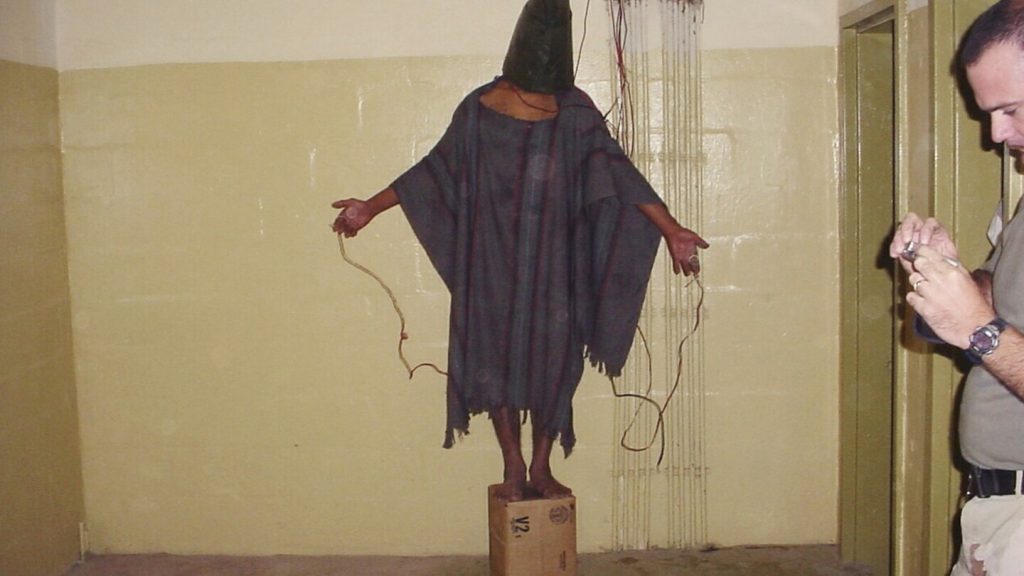A former detainee at Abu Ghraib prison testified in court about the abuse he experienced during his time there in 2003. The abuse included beatings, being stripped naked, threatened with dogs, and subjected to stress positions. This marks the first time survivors of the scandal at Abu Ghraib have been able to bring their claims of torture to a U.S. jury. The former detainee, Salah Al-Ejaili, along with two others, are suing military contractor CACI for contributing to their torture by sending civilian interrogators as part of an Army contract.
The defense for CACI argued that the plaintiffs cannot prove they were abused, as they are not depicted in the widely circulated photos from the scandal. The official records do not show any formal interrogations of Al-Ejaili, even though he testified that he was interrogated multiple times and beaten before each interrogation. The defense also stated that even if the plaintiffs were abused, there is no evidence that CACI interrogators were responsible for inflicting the abuse. They claimed that the soldiers convicted of the abuse acted independently.
The defense further argued that even if CACI employees engaged in wrongdoing, it was the U.S. military, not the company, that oversaw the interrogators’ conduct. They rejected the idea that CACI civilians independently decided to abuse detainees. The plaintiffs’ lawyer countered this by stating that CACI interrogators conspired with military police by encouraging them to abuse detainees before questioning. He cited investigations by Army generals that pointed to a void in the chain of command filled by civilians.
The trial, which was delayed for over 15 years, is now moving quickly. A jury was seated, opening arguments were heard, and key witnesses testified. These witnesses included Al-Ejaili, a former CACI interrogator, and a former military police officer convicted of abusing detainees. The former CACI interrogator expressed concerns about his colleagues’ actions, while the military police officer testified via video deposition about instructions given by civilian interrogators.
Al-Ejaili’s testimony was emotional, as he described being naked in a cold cell and subjected to painful positions. He expressed the importance of being able to share his story with a jury, even after 20 years. The trial sheds light on the disturbing events that took place at Abu Ghraib prison and raises questions about the accountability of military contractors in such situations. The outcome of the trial will have implications for how such cases are handled in the future.


